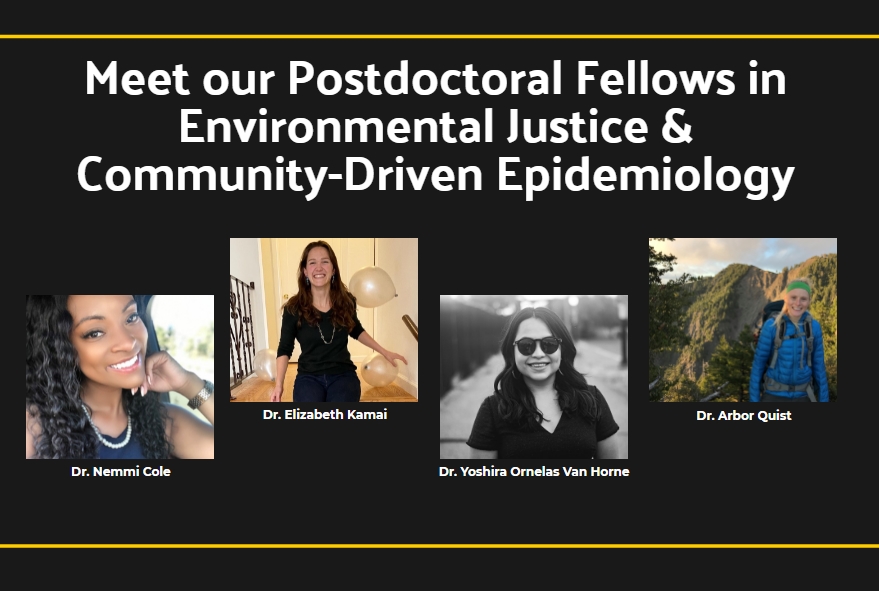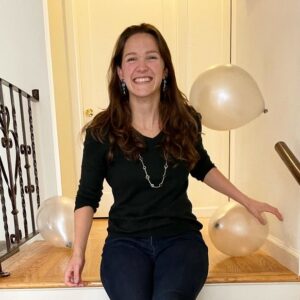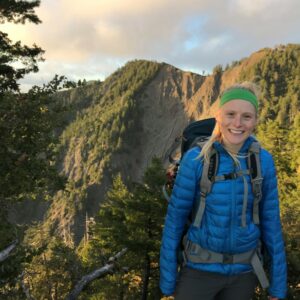
Southern California (CA) has some of the country’s worst air pollution, the nation’s largest port complex, large industrial polluters, and communities facing significant environmental health disparities. Advancements in environmental health science require innovative and interactive multidisciplinary training to address issues of environmental justice at the community level. Community-engaged and community-driven models have shown to be more effective to advance public health than top-down strategies and more likely to be sustained when grounded in local systems and culture. Further, community participation strengthens research dissemination and implementation. Health inequities are addressed when education between scientists and the public occurs in both directions; however there is a gap in these training opportunities for postdoctoral researchers.
Drs. Jill Johnston and Shohreh Farzan collaborate to mentor and o support the next generation of scholars to conduct community-engaged action-oriented research and engagement to address environmental justice. Below we introduce you to our inaugural cohort of fellows who will integrate training in community engagement, popular education, dissemination and partnerships to develop novel research to address inequitable exposures to harmful contaminants that affect health disparities, including in Latinx and Black communities. These accomplished fellows bring diverse experiences, insights and expertise to expand a community-driven research agenda to address multiple and complex environmental and social burdens facing residents in Southern CA.

Dr. Nemmi Cole is a Civil and Environmental Engineer from San Bernardino, CA, by way of Houston, TX. Dr. Cole received her B.S. in Civil and Environmental Engineering, M.S. in Civil Engineering with an emphasis in GeoEnvironmental Engineering, and her PhD in Civil Engineering with an emphasis in Environmental Engineering from Florida Agricultural and Mechanical University, FAMU-FSU College of Engineering. Her dissertation research was a cross-sectional population-based investigation, analyzing the association of drinking water quality and sociodemographic variabilities in the state of Florida. The main goal of her research was to analyze the drinking water quality for all public water systems and assess potential environmental disparities that many communities often face. Currently, Nemmi is focusing on the association of drinking water quality and violation among smaller water systems and the association with neighborhood-level characteristics in the Southern California region. Nemmi believes Gandhi said it best, “Be the change you wish to see in this world”. With those sentiments in mind, Nemmi is eager to contribute new innovative research methods to ultimately increase environmental equity and justice for all communities.

Dr. Elizabeth Kamai is an environmental epidemiologist and received her MSPH and PhD in Epidemiology at the Gillings School of Global Public Health at the University of North Carolina at Chapel Hill. She studies how environmental exposures – such as chemicals in consumer products or pollution from industrial facilities – affect the health of vulnerable populations. Her dissertation research examined patterns of childhood blood lead surveillance in North Carolina and the relationship between proximity to industrial sources of lead pollution and children's blood lead levels. As part of the EJ Research Lab, Elizabeth works on the AIRE (Assessing Imperial Valley Respiratory Health and the Environment) and BELLA (Breast Health & the Environment among Latinas in Los Angeles) community-based research studies and provides research support for the SCLA-PUSH collaboration. She aims to conduct research that supports local communities and advances policies that address environmental injustice.

Dr. Yoshira Ornelas Van Horne is the first Latina to receive a PhD in Environmental Health Sciences from the University of Arizona. Her research focuses on addressing unequal exposures to harmful contaminants that affect structurally marginalized communities. She is committed to building health equity through community-driven research. Dr. Ornelas Van Horne is passionate about research translation and communication and currently serves as Assistant Director of Curriculum Development & Cohort Engagement at Agents of Change in Environmental Justice. Currently her research with the AIRE study in rural border communities assesses the relationship between pesticide exposures and children’s respiratory health together with approaches for community reportback and dissemination. She was awarded a Diversity Supplement through the National Institutes of Health (R01ES029598-03S1)

Dr. Arbor Quist is an environmental epidemiologist interested in community-driven research that addresses climate and environmental injustice. Arbor recently completed her PhD in epidemiology at the University of North Carolina at Chapel Hill. Her dissertation examined how hurricane flooding and industrial swine operations, separately and jointly, affect acute gastrointestinal illness. Her research has focused on the ways in which climate change-related disasters exacerbate health disparities. Arbor has also worked with communities after hurricane flooding to examine well water contamination and mold concerns in North Carolina to promote community resilience and preparedness. She has also worked on projects examining the neurobehavioral effects of oil spills. Currently, Arbor is examining the health effects of oil drilling in South Los Angeles and metal mixture exposure patterns in residents near oil wells. In her spare time, she enjoys backpacking, biking, and climbing. “As a postdoc, I am excited to learn new methods, build relationships with communities and researchers, and develop skills to become a better community-driven, justice-focused researcher.” You can reach her at arborqui@usc.edu.
Support for the postdoctoral program in environmental justice and community-driven epidemiology comes from the Southern California Environmental Health Sciences Center (P30ES007048), MADRES Environmental Health Disparities Center (P50MD015705), NIH T32ES013678, Assessing Imperial Valley Respiratory Health & the Environment (R01ES029598) and through partnerships with community-based organizations across Southern California.